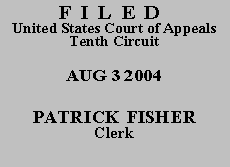

| PAUL M. VON LOH,
Plaintiff-Appellant, v. SYNTHES, INC., a Delaware corporation; ROBERT J. BENZ, M.D.; DOUGLAS W. BEARD, M.D.; ORTHOPAEDIC CENTER OF THE ROCKIES, P.C., a professional corporation, Defendants-Appellees. |
|
The question presented in this appeal is whether the district court properly dismissed Plaintiff Paul M. Von Loh's amended complaint for lack of subject-matter jurisdiction. Reviewing de novo, see Merrill Lynch Bus. Fin. Servs., Inc. v. Nudell, 363 F.3d 1072, 1074 (10th Cir. 2004), we affirm.
Defendants Dr. Robert J. Benz and Dr. Douglas W. Beard performed a spinal fusion surgery on Plaintiff. In doing so, they used titanium translaminar screws manufactured by defendant Synthes, Inc. to stabilize the spine. Later, the same doctor defendants performed a second surgery to replace some of the screws. Plaintiff filed an amended complaint raising several state-law medical-malpractice, negligence, emotional-distress, vicarious-liability, and joint-and-several-liability claims against defendants Dr. Benz; Dr. Beard; Orthopedic Center of the Rockies, the employer of the doctors; and Poudre Valley Health Care, Inc. Plaintiff also alleged state-law product-liability and breach-of-warranty claims against Synthes. Although he raised only state-law claims, he asserted federal-question jurisdiction under 28 U.S.C. § 1331 and supplemental jurisdiction under 28 U.S.C. § 1367(a).
Defendants moved to dismiss on the ground that the district court lacked subject-matter jurisdiction because Plaintiff failed to present a federal question. Plaintiff responded, for the first time, that federal-question jurisdiction under § 1331 for the claims against Synthes arises under the Medical Device Amendments of 1976 (MDA), specifically 21 U.S.C. §§ 360 and 510(k) (repealed) and 21 C.F.R. § 807.87. He also asserted that the federal-question jurisdiction against Synthes allowed the district court to exercise supplemental jurisdiction under § 1367(a) for the claims against the other defendants. After holding a hearing, the district court granted defendants' motions to dismiss. This appeal followed.
"Federal-question jurisdiction exists for all claims 'arising under the Constitution, laws, or treaties of the United States.'" Nicodemus v. Union Pac. Corp., 318 F.3d 1231, 1235 (10th Cir. 2003) (quoting 28 U.S.C. § 1331), reh'g en banc granted, (10th Cir. Apr. 22, 2003). "A case arises under federal law if its well-pleaded complaint establishes either that federal law creates the cause of action or that the plaintiff's right to relief necessarily depends on resolution of a substantial question of federal law." Id. (internal quotation marks omitted).
Thus, to find jurisdiction under 28 U.S.C. § 1331, two conditions must be satisfied. First, a question of federal law must appear on the face of plaintiff's well-pleaded complaint. Second, plaintiff's cause of action must either be (1) created by federal law, or (2) if it is a state-created cause of action, its resolution must necessarily turn on a substantial question of federal law.
Id. (internal citation and quotation marks omitted).
Plaintiff fails to meet the first condition, because no question of federal law appears on the face of his amended complaint. See Caterpillar Inc. v. Williams, 482 U.S. 386, 392 (1987). Nowhere in the complaint does he mention the MDA. Nor does he assert that his product-liability claims, or any other claims, arise under federal law. Because Plaintiff cannot meet the well-pleaded complaint rule, we need not address the second necessary condition for federal-question jurisdiction.
We conclude that the district court properly held that it lacked subject-matter jurisdiction under § 1331 for the product-liability claims and therefore properly declined to exercise supplemental jurisdiction under § 1367(a) for the medical-malpractice and other claims. Accordingly, we AFFIRM.
Entered for the Court
Circuit Judge
*. This order and judgment is not binding precedent, except under the doctrines of law of the case, res judicata, and collateral estoppel. The court generally disfavors the citation of orders and judgments; nevertheless, an order and judgment may be cited under the terms and conditions of 10th Cir. R. 36.3.